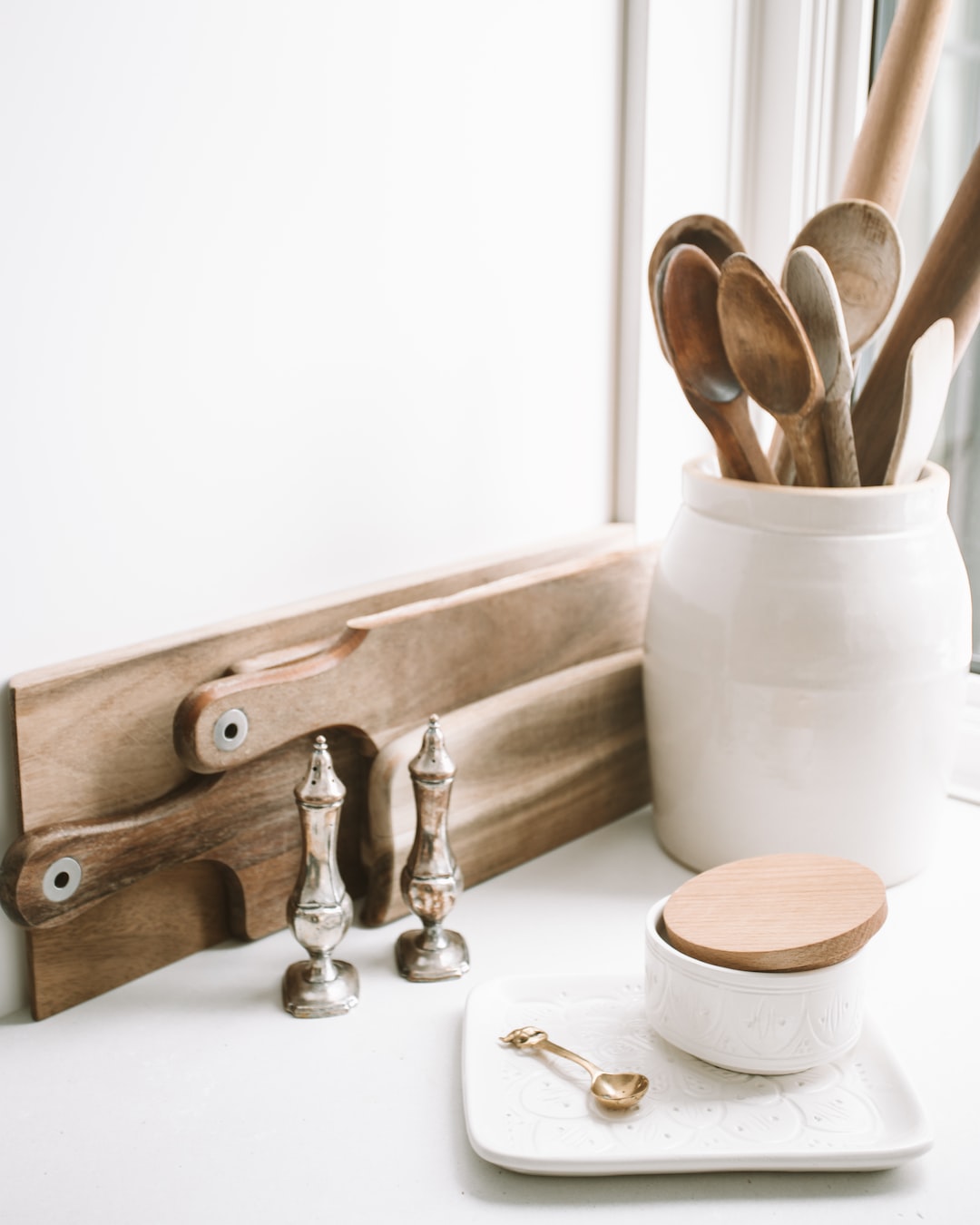[su_note note_color=”#ffe3e6″]This post contains affiliate links. Affiliate disclosure: As an Amazon Associate, we may earn commissions from qualifying purchases from Amazon.com and other Amazon websites.[/su_note]
Ladle of Contents
Key Takeaways:
– Bamboo utensils are sustainable and require hand washing and occasional oiling.
– Wooden utensils are classic, germ-resistant, and environmentally friendly, but they stain easily and require regular oiling.
– Silicone utensils are affordable, heat resistant, and come in various colors, but they can be damaged by sharp objects and some may contain fillers.
– Metal utensils are durable, easy to clean, and dishwasher safe, but they can cause superficial scratches on stainless steel cookware.
Bamboo Utensils: Sustainable and Eco-Friendly
Bamboo utensils have gained popularity in recent years due to their sustainability and eco-friendly nature. Bamboo is a fast-growing plant that does not require pesticides or fertilizers, making it an excellent choice for those who prioritize environmental conservation. When used with stainless steel cookware, bamboo utensils provide a natural and organic touch to the kitchen.
One of the advantages of bamboo utensils is their lightweight and comfortable grip. They are easy to handle and maneuver, making cooking a breeze. However, it is important to note that bamboo utensils should be hand washed and dried immediately to prevent warping or cracking. Additionally, occasional oiling with food-grade mineral oil helps maintain their longevity and prevents them from absorbing odors or stains.
Wooden Utensils: Classic and Germ-Resistant
Wooden utensils have been used in kitchens for centuries and are known for their classic and timeless appeal. They are naturally germ-resistant, making them a hygienic choice for cooking. The porous nature of wood helps prevent the growth of bacteria, unlike plastic utensils that can harbor germs.
However, wooden utensils require regular maintenance to keep them in optimal condition. They should be hand washed with mild soap and warm water, as they are not dishwasher safe. It is important to note that wooden utensils can stain easily, especially when used with strongly colored ingredients like turmeric or tomato-based sauces. To prevent staining and maintain their appearance, regular oiling with food-grade mineral oil is recommended.
Silicone Utensils: Affordable and Heat Resistant
Silicone utensils have gained popularity in recent years due to their affordability and heat resistance. They are available in a wide range of colors, allowing users to add a pop of personality to their kitchen. Silicone utensils are heat resistant up to a certain temperature, making them suitable for use with stainless steel cookware.
One of the advantages of silicone utensils is their affordability. They are often more budget-friendly compared to other types of utensils. However, it is important to note that silicone utensils can be damaged by sharp objects, so it is advisable to avoid using them with knives or other sharp tools. Additionally, some silicone utensils may contain fillers, so it is important to choose high-quality utensils from reputable brands.
Metal Utensils: Durable and Easy to Clean
Metal utensils, such as stainless steel or aluminum, are known for their durability and ease of cleaning. They are resistant to heat and can withstand high temperatures, making them suitable for use with stainless steel cookware. Metal utensils are also dishwasher safe, saving time and effort in the kitchen.
However, it is important to note that metal utensils can cause superficial scratches on stainless steel cookware. While these scratches do not affect the performance of the cookware, they can be unsightly. To minimize scratching, it is recommended to use metal utensils with care and avoid using them with non-stick or coated stainless steel cookware.
Conclusion:
When it comes to choosing the best utensils to use on stainless steel cookware, there are several options to consider. Bamboo utensils offer sustainability and a natural touch, while wooden utensils provide a classic and germ-resistant option. Silicone utensils are affordable and heat resistant, but care should be taken to avoid sharp objects. Metal utensils are durable and easy to clean, but they can cause superficial scratches on stainless steel cookware.
Ultimately, the choice of utensils depends on personal preferences and priorities. Whether you opt for bamboo, wood, silicone, or metal utensils, it is important to consider their advantages and limitations to ensure a pleasant cooking experience with your stainless steel cookware.



